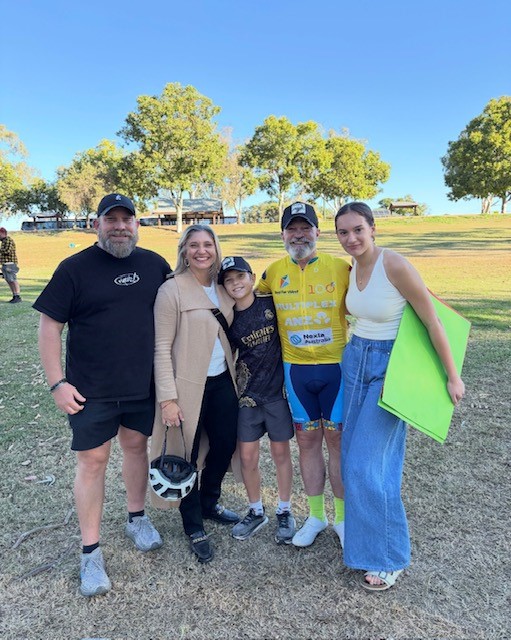Listening first: a reflection on leadership and legacy – Commissioner Gwen Cherne
By Gwen Cherne, Veteran Family Advocate

As I prepare to end my 5-year tenure as Commissioner, now more than ever I know this role has never been just a job. It has been my ‘ikigai’ – my reason for being.
It brought together what I love, what I’m good at, what the world needs, and what I’ve been fortunate to be paid for. It has been a fusion of purpose and passion in equal measure. It has tested me, taught me, and rooted me in service.
A mindset of listening deeply before acting has guided me throughout my time as the inaugural Veteran Family Advocate Commissioner. It’s shaped how I approached every roundtable, meeting and heartfelt conversation with a widow, a child, a carer, a veteran, or a parent.
Because enduring change doesn’t come from having all the answers – it comes from asking better questions. And then asking more.
I’ve learned that assumptions are the enemy of progress. I’ve tried to remain curious, not certain. ‘Hold strong opinions, weakly’ – author and scholar Paul Saffo’s dictum has always resonated deeply with me. The courage to care deeply, and the humility to let go when better ideas emerge.
This is the kind of leadership we need to strive for in Defence, in DVA, and across the veteran and ex-service community. Not driven by titles or tenure, but by curiosity, compassion, and the courage to ask questions before offering answers.
Leadership, to me, has never been about rank or status. It’s about humility – holding a mirror to ourselves and seeing clearly, without ego, both our strengths and our blind spots. It’s about recognising the wisdom in others, the gaps in our systems, and the quiet resilience woven through the stories people carry.
True leadership is not about being the loudest voice in the room. It’s about creating space for others to speak. It’s about discernment over dominance, elevating those around you, holding space for difference, and showing up not just with passion – but with teachability.
Over the years, I’ve come to believe that modelling teachability – being willing to be shaped by others – is among the most powerful things a leader can do. Whether supporting grieving families, listening to young people navigating trauma, or working with veteran parents on policy reform, the principle has always been clear: Nothing for you, without you.
Through collective effort, I’ve seen real shifts. The voices of veteran families – once marginalised – are now central to national conversations. That’s not just the result of individual advocacy: it’s the result of community. Of people who stood up, spoke out, and called for better – for themselves, and for those who come next.
One of the initiatives I’m most proud to see taking shape is the Postvention Workshop for veteran families bereaved by suicide, held last month. It’s something I’ve advocated for over 7 years – a journey driven by the belief that families should never walk through loss alone. This workshop reflected what this role has always been about: listening with intention, responding with compassion, and creating space for connection, healing, and hope.
As I step away from this role, I do so not with a sense of finality, but with deep respect for all that still lies ahead, and immense trust in those who will carry this work forward. It continues in so many people across this country who have emerged as leaders for families. It continues on committees, in classrooms, homes, community halls, and places of remembrance. It lives in the everyday persistence of those who refuse to be unseen.
One of the greatest markers of success is continuity. I’m proud that this role – through years of steady advocacy, community engagement, and the support of government – will continue. It stands today as a trusted voice for veteran families, and a mechanism for both accountability and progress. That recognition ensures the work goes on.
While I may be stepping aside, the Repatriation Commission’s mission remains unchanged: to listen, to serve, and to keep veteran families at the heart of everything we do.
Thank you for allowing me to walk alongside you. It has been an honour and a privilege. This has always been a well-worn path, one shaded by darkness for far too long. But together, we’ve begun to shine light into that darkness, to clear the way forward for others, and to walk with those who need us most.
Though I will no longer be in this role, I will always be an advocate. I will keep walking this path, alongside you, continuing to listen, to learn, and to shine a light wherever it’s needed.
There’s still work to do. So let’s keep going – together.